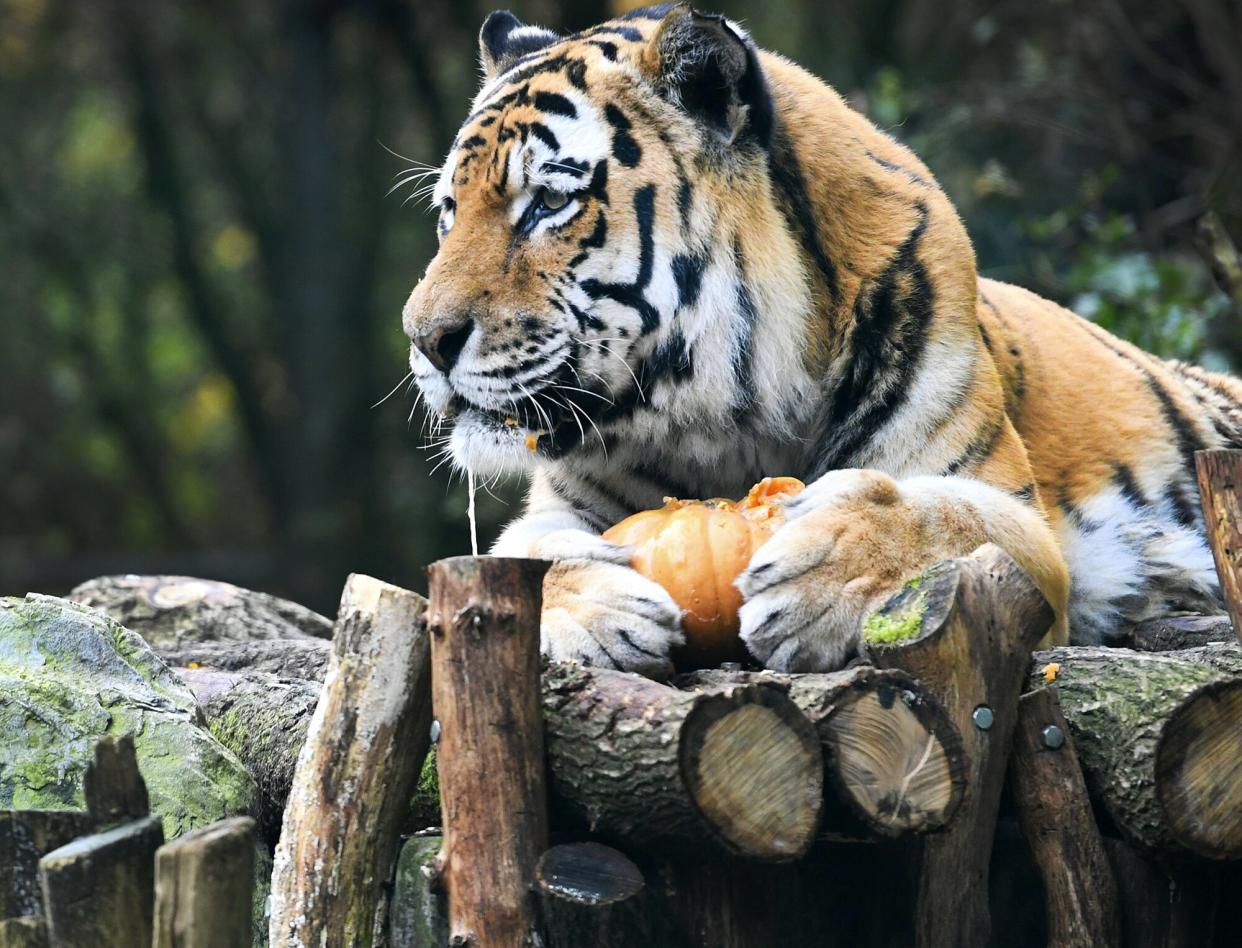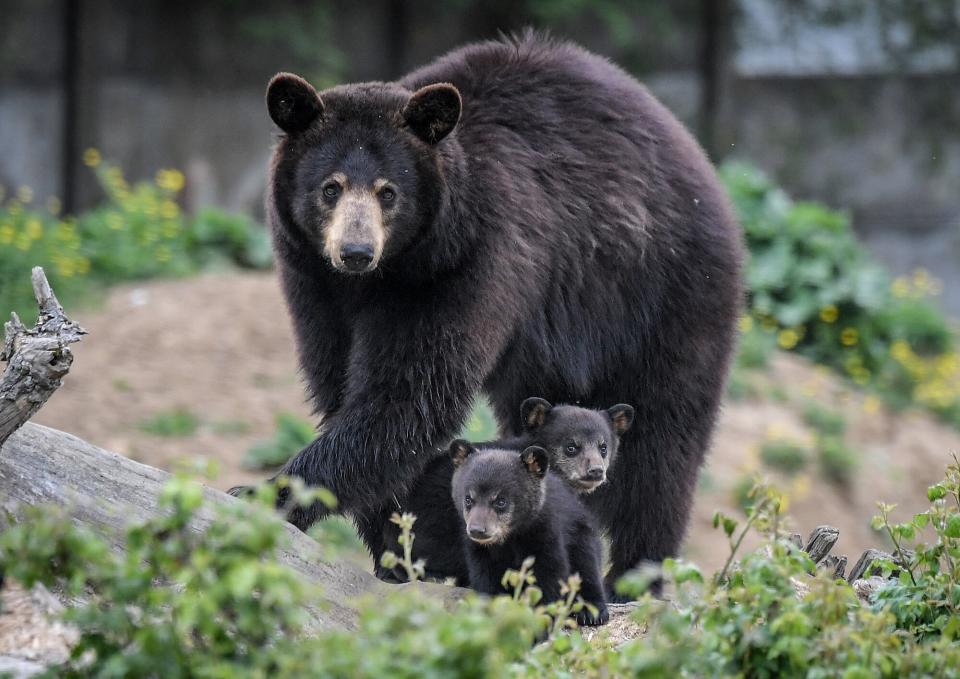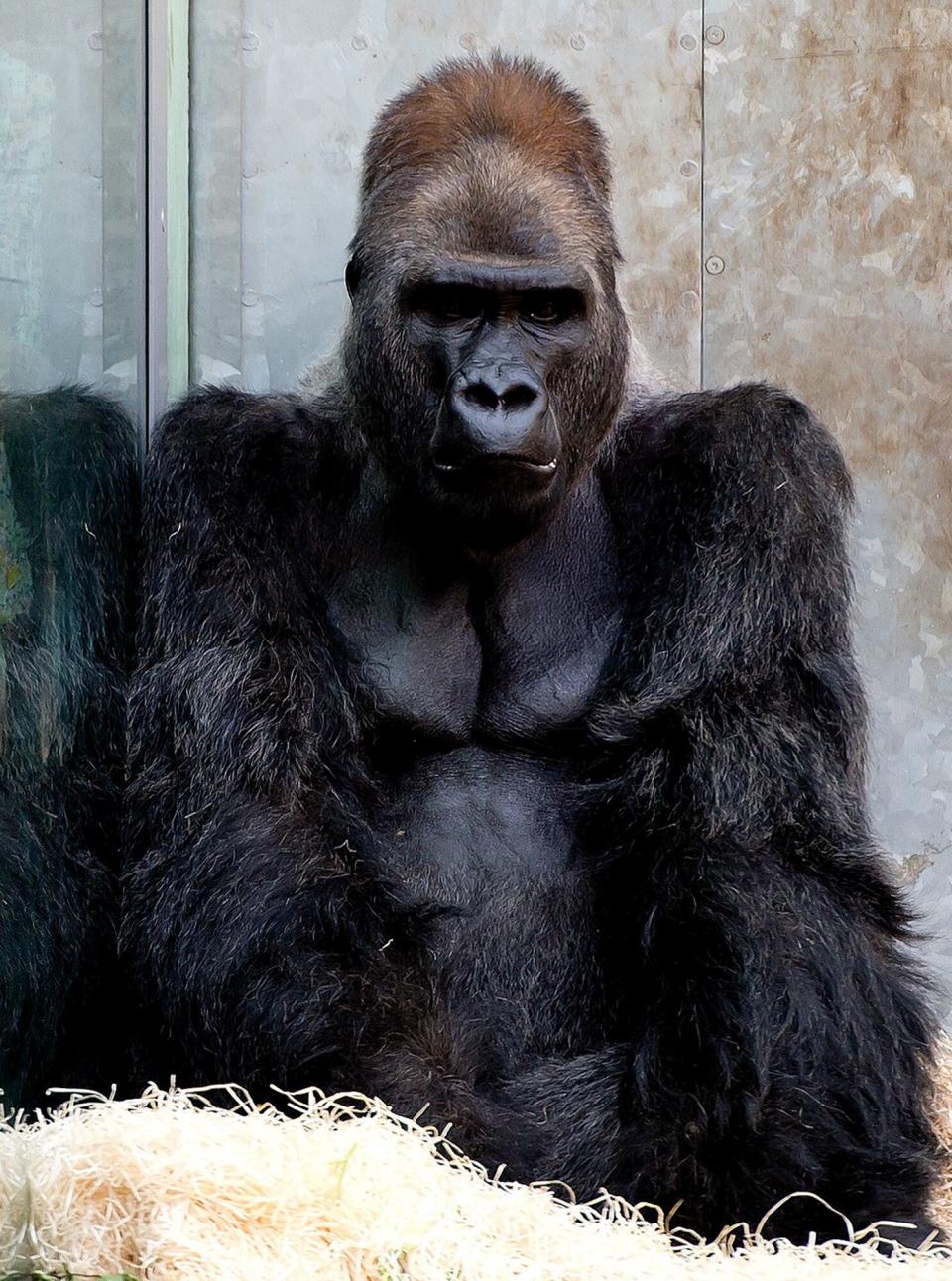Wisconsin, Colorado, and California Zoos Begin Vaccinating their Animals Against COVID

Piroschka van de Wouw/AFP/Getty
An increased number of U.S. zoos are following in the footsteps of California's San Diego Zoo by vaccinating their animals against COVID-19.
The San Diego Zoo Wildlife Alliance's primates were given doses of a vaccine developed by the veterinary pharmaceutical company Zoetis in March after a troop of eight gorillas at the San Diego Zoo Safari Park tested positive for COVID-19.
Denver Zoo in Colorado, Oakland Zoo in California, Milwaukee County Zoo in Wisconsin, and the Henry Vilas Zoo in Wisconsin are among the numerous zoos that recently announced they would also be vaccinating their animals.
Zoetis donated more than 11,000 doses of its experimental COVID-19 vaccine for animals to about 70 zoos, sanctuaries, conservatories, academic institutions, and governmental operations, the company said in a news release.

LOIC VENANCE/AFP/Getty Bear and cubs
RELATED: Great Apes at San Diego Zoo Receive Experimental COVID-19 Vaccine Made for Animals
"This is a vaccine that was developed for animals by the Zoetis company," Scott Larsen, head veterinarian at the Denver Zoo, told CNN Wednesday of their decision to administer the drug. "By using it in animals, it's not taking away vaccines that would otherwise be distributed to people."
Larsen added, "We're concerned about the animals' overall populations and long-term survival on the plane. There's been concern about wild populations of these animals, some of the last on earth, and what may happen when the virus gets into these animals. We're just trying to do the best we can."
The Oakland Zoo announced on July 2 that they received their first shipment of vaccines on June 29 and started using it on "their highest at-risk animals," which include tigers, black bears, grizzly bears, mountain lions, and ferrets. Next, they plan to vaccinate primates and fruit bats.
"Up until now, we have been using public barriers at certain habitats to ensure social distancing, along with enhanced PPE worn by staff to protect our susceptible species from COVID-19. We're happy and relieved to now be able to better protect our animals with this vaccine, and are very thankful to Zoetis for not only creating it but for donating it to us and dozens of other AZA-accredited zoos across the U.S.," Dr. Alex Herman, VP of Veterinary Services at Oakland Zoo said in a press release.
RELATED: Gorillas at the San Diego Zoo Safari Park Test Positive for COVID-19
Zoo officials at the Milwaukee County Zoo told the Associated Press on Wednesday about their decision to use the experimental drug.
The Milwaukee County Zoo spokeswoman Jennifer Diliberti-Shea noted that their animals routinely get vaccines when new diseases emerge. "That's something that our animal care team does for various diseases. Obviously, with COVID-19, we were waiting until there was a vaccine that we could give them," she said.
At fellow Wisconsin zoo Henry Vilas, deputy director Joseph Darcangelo told Wisconsin Public Radio News that the zoo plans to first administer the Zoetis COVID-19 vaccine to great apes, tigers, and lions — and members of the mustelid family, including otters, skunks and badgers.
In February, four orangutans and five bonobos under the care of the San Diego Zoo Wildlife Alliance each received two doses of an experimental COVID-19 vaccine designed for animals, Nadine Lamberski, the chief conservation and wildlife health officer at the San Diego Zoo Wildlife Alliance, told National Geographic.

SVEN HOPPE/AFP/Getty Gorilla
Never miss a story — sign up for PEOPLE's free daily newsletter to stay up-to-date on the best of what PEOPLE has to offer, from juicy celebrity news to compelling human interest stories.
The decision to acquire the vaccine came one month after a troop of eight gorillas at the San Diego Zoo Safari Park tested positive for COVID-19, becoming the first known great apes in the world to contract the virus.
"This isn't the norm. In my career, I haven't had access to an experimental vaccine this early in the process and haven't had such an overwhelming desire to want to use one," Laberski said.
The Centers for Disease Control and Prevention confirmed that the virus could "spread from people to animals in some situations, especially during close contact," but it is still learning about the link.

